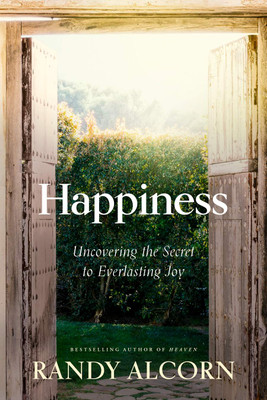Two seriously ill men occupied the same hospital room. The man next to the window was able to sit up, while the other couldn’t.
Each day the man by the window described in picturesque detail what he saw—including a lake, ducks, and children sailing model boats. This meant the world to his roommate, who had no outside view. Witnessing these sights secondhand brought him daily happiness.
Eventually the man by the window died. His saddened roommate requested a move to the bed by the window. He couldn’t wait to enjoy all the sights his roommate had described. But as he eagerly looked outside for the first time all he saw was an old brick wall.
Perspective makes all the difference. His roommate had been able to see, in his mind’s eye, life beyond the wall. Some prisoners, surrounded by bare walls, see in their imaginations the world’s true beauty. But many “free people” are surrounded by rich beauty yet day after day, year after year, fail to see it. Who is happier?
J. R. R. Tolkien wrote in The Fellowship of the Ring: “The world is indeed full of peril, and in it there are many dark places; but still there is much that is fair, and though in all lands love is now mingled with grief, it grows perhaps the greater.”
The better I know Jesus, the more I see Him all around me—in people, animals, places, and objects. But if I hadn’t studied His Word and reflected on His character over the years, I wouldn’t have known what to look for. A student of insects or birds can see dozens of fascinating specimens on a short walk. Another person on the same walk, not having learned to observe, can miss them altogether.
Scripture paints a picture of how we should think about God in our daily lives: we should be talking about (and to) God throughout the day, teaching ourselves and our children to see Him in everything (see Deuteronomy 6:1-7).
Two of my grandsons love football and in their younger years, would speak tirelessly of professional players. So Nanci and I entered into their world. We would name those we consider the best players and say, “Isn’t it amazing that God has given each person special gifts to use for his glory, and the rest of us get to enjoy it?” In this way, we could see God’s master craftsmanship in the beauty of life. When we would see an athlete who honors Christ, we encouraged our grandsons with his or her example. When we observed ugliness in an athlete who glorifies himself, we knew it was the Curse at work, and it’s another teaching opportunity.
Consider the brightest “stars” in the sky—which are actually the planets Venus, Jupiter, Mars, and Saturn. Unlike the true stars we see, which are far away and therefore dimmer, these planets don’t shine with their own light; they are bright only because they reflect the sun.
Likewise, the moon is a beautiful sight, but it doesn’t generate light on its own. It merely reflects it. Merely makes the reflection sound trivial, but this is actually a magnificent phenomenon. The moon was made to glorify the sun, and when it does, it shares in the sun’s glory. (If the moon were able to talk, wouldn’t we think it foolish if we heard it congratulate itself for how brightly it shines?)
So it is with all secondary sources of happiness. Things such as art, music, literature, sports, careers, and hobbies generate no light on their own. The light they bring comes from “the Father of lights” (James 1:17).
I don’t value the planets and moon less because they don’t shine by their own light. Likewise, I don’t devalue my wife, my children, my grandchildren, my coworkers, or my dog because they’re secondary to God and reflect Him. On the contrary, I value them all the more because the God who is primary has made them who and what they are, and He has endowed them with worth that makes them far more important than if they were merely random accidents with a flickering light of their own.
Happiness can be sought in thousands of places, but it can be found in only one. That source is God, who incredibly is “Christ in you” (Colossians 1:27). He is big enough to create the galaxies, yet He dwells in each of us who know Him.
Excerpted from 60 Days of Happiness.







